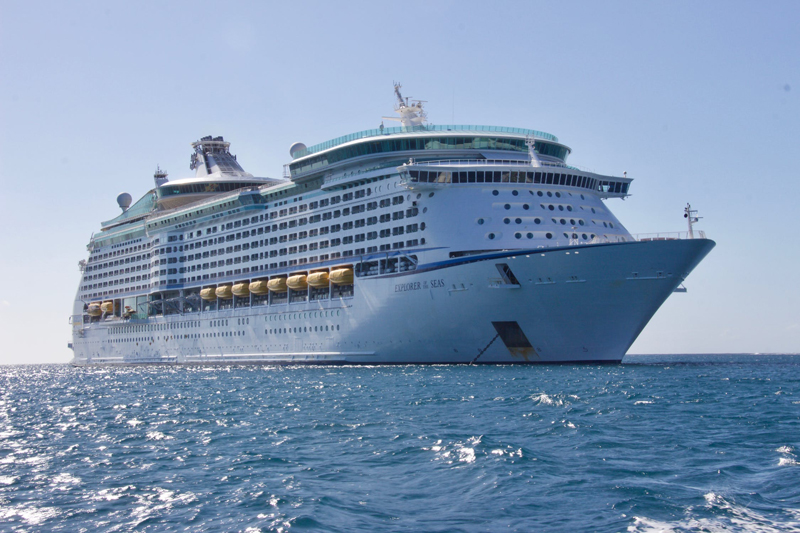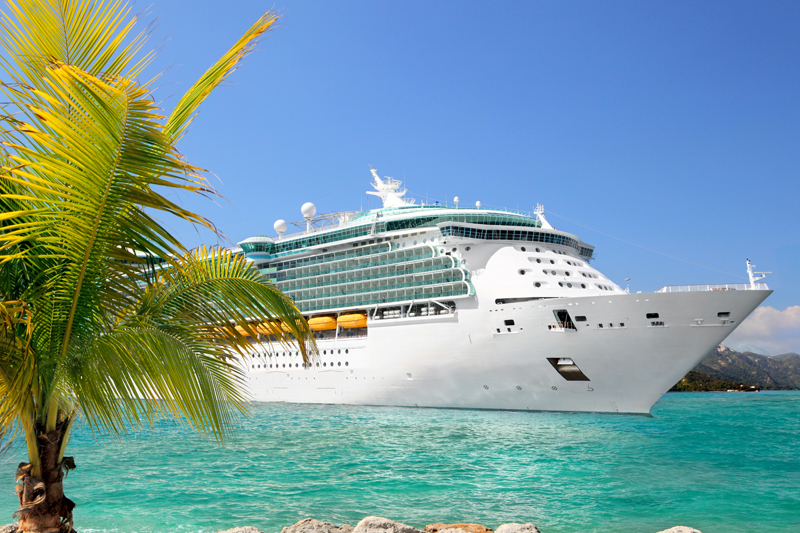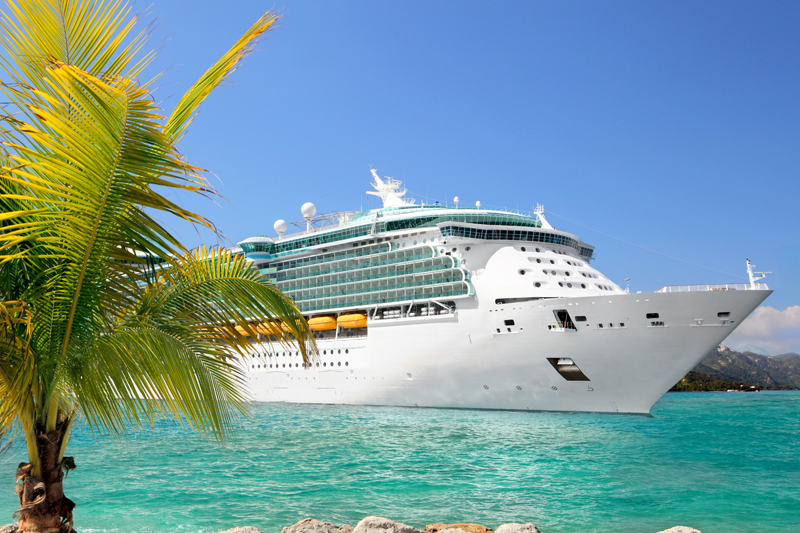Avoid These 7 Cruise Mistakes

Travelers eagerly look forward to their cruise vacations. It’s possible for these much-awaited vacations to go awry, however, without proper information and advance planning. Here are seven common mistakes to avoid on your next cruise.
1. Choosing the Wrong Ship. All cruise ships are not created equal, so don’t purchase a cruise vacation solely based on price. It’s important to understand the ship and its amenities, the types of vacationers it attracts, and the itinerary on which you’ll be sailing. Many vacationers like to cruise with individuals that are somewhat like themselves. Certain cruise lines and ships tend to attract lots of families with children, while older guests gravitate towards others. Consider using a travel agent when booking your cruise. A good cruise travel agent understands the differences between cruise lines, specific ships and their amenities, as well as the various itineraries available. Those vacationing with children should talk with a cruise travel agent who is particularly knowledgeable about family cruising, such as those at Vacationkids.com.
2. Picking a Bad Stateroom. Choosing the right stateroom can make a huge difference in cruise enjoyment. Some cruise cabins are almost guaranteed to be noisy. Study your ship’s deck plans before reserving any type of cabin. Look for a quiet room away from boisterous areas like elevators, lounges, atriums and children’s program facilities. Thoroughly review the deck layouts above and below the cabin you’re considering to see what’s located over and under your room. Stay away from booking staterooms above or below nightclubs, theaters, bars with live music, crew work areas, self service laundries, sports venues, kitchens, and the main dining rooms and buffet areas. Some frequent cruise guests also shun staterooms right below the ship’s pool to avoid the early morning sound of lounge chairs being arranged on deck.
3. Booking Tight Flights. It’s important to choose the right flights in order to avoid nail-biting stress or possibly even missing your ship. Direct flights can be more expensive, but that’s not always the case. Use a good travel agent or book your flights immediately after you purchase your cruise for the best results. If connecting flights are mandatory for your cruise, make sure to allow plenty of time for connections. While a 40-50 minute connecting time between flights is often considered to be “legal” by airlines, it will give you little cushion if there’s a weather or mechanical delay. If you’re flying to your embarkation port on the same day your cruise departs, play it safe and allow at least 90 minutes or more for connections. Many cruise guests prefer to arrive at their home port the day before their cruise departs to avoid complications.
4. Packing Incorrectly. Cruise ship staterooms are relatively small, so avoid overpacking for your cruise. In addition, make sure to pack your cruise documents, passports, prescription medicines and other essential items in your carry-on luggage. You might want to pack at least one change of clothes and perhaps a bathing suit in your carry-on bag as well. That way, you won’t have major problems if your luggage is delayed or lost.
5. Failing to Purchase Trip Insurance. Make sure to purchase trip insurance to protect your vacation investment in case an unforeseen transportation problem, family illness, health situation, or other issue arises. When buying your travel insurance, make sure that your flights are wrapped into the coverage. Some vacationers buy insurance directly from their cruise line when purchasing their cruise and then obtain their own flights separately. When a problem arises with their flights, they can find that their trip insurance only covers the cruise. Make sure you understand what is covered by the trip insurance policy you’re purchasing and read the fine print carefully.
6. Forgetting the Proper Documentation. As soon as you begin thinking about taking a cruise, double check the documents needed for the trip. If you do not have the proper documentation for your cruise, you will be denied boarding. Check directly with the cruise line or your travel agent to see exactly what’s required. In addition, look carefully at the expiration date on your passport. Many cruise lines now require passports to be valid for at least six months after the time your cruise is over. If you’re traveling with children, there may be additional documents you are required to bring. Single parents or a married parent traveling solo with their children may need a notarized letter from the other parent giving permission for the trip. This requirement may also apply to grandparents traveling without their grandchildren’s parents and parents bringing along a child's friend on a cruise.
7. Not Staying On Ship’s Time. The difference between “ship’s time” and “local time” can be very confusing. Some ships change the time onboard as they sail through different time zones. Passengers are told to set their clocks and watches forward or backward the night before the change – and the clocks on the ship will reflect the new time as well. In other cases, however, the ship remains on its home port time zone throughout the journey. In that situation, the “ship’s time” is not the same as “local time.” To ensure that you don’t miss your ship, make sure to check what time the ship is using in each port of call. Ask again before getting off the ship, check your watch to make sure it’s set correctly, and double check what time you need to be back onboard. After all, you don’t want to miss your ship because you’re on “island time.”
1. Choosing the Wrong Ship. All cruise ships are not created equal, so don’t purchase a cruise vacation solely based on price. It’s important to understand the ship and its amenities, the types of vacationers it attracts, and the itinerary on which you’ll be sailing. Many vacationers like to cruise with individuals that are somewhat like themselves. Certain cruise lines and ships tend to attract lots of families with children, while older guests gravitate towards others. Consider using a travel agent when booking your cruise. A good cruise travel agent understands the differences between cruise lines, specific ships and their amenities, as well as the various itineraries available. Those vacationing with children should talk with a cruise travel agent who is particularly knowledgeable about family cruising, such as those at Vacationkids.com.
2. Picking a Bad Stateroom. Choosing the right stateroom can make a huge difference in cruise enjoyment. Some cruise cabins are almost guaranteed to be noisy. Study your ship’s deck plans before reserving any type of cabin. Look for a quiet room away from boisterous areas like elevators, lounges, atriums and children’s program facilities. Thoroughly review the deck layouts above and below the cabin you’re considering to see what’s located over and under your room. Stay away from booking staterooms above or below nightclubs, theaters, bars with live music, crew work areas, self service laundries, sports venues, kitchens, and the main dining rooms and buffet areas. Some frequent cruise guests also shun staterooms right below the ship’s pool to avoid the early morning sound of lounge chairs being arranged on deck.
3. Booking Tight Flights. It’s important to choose the right flights in order to avoid nail-biting stress or possibly even missing your ship. Direct flights can be more expensive, but that’s not always the case. Use a good travel agent or book your flights immediately after you purchase your cruise for the best results. If connecting flights are mandatory for your cruise, make sure to allow plenty of time for connections. While a 40-50 minute connecting time between flights is often considered to be “legal” by airlines, it will give you little cushion if there’s a weather or mechanical delay. If you’re flying to your embarkation port on the same day your cruise departs, play it safe and allow at least 90 minutes or more for connections. Many cruise guests prefer to arrive at their home port the day before their cruise departs to avoid complications.
4. Packing Incorrectly. Cruise ship staterooms are relatively small, so avoid overpacking for your cruise. In addition, make sure to pack your cruise documents, passports, prescription medicines and other essential items in your carry-on luggage. You might want to pack at least one change of clothes and perhaps a bathing suit in your carry-on bag as well. That way, you won’t have major problems if your luggage is delayed or lost.
5. Failing to Purchase Trip Insurance. Make sure to purchase trip insurance to protect your vacation investment in case an unforeseen transportation problem, family illness, health situation, or other issue arises. When buying your travel insurance, make sure that your flights are wrapped into the coverage. Some vacationers buy insurance directly from their cruise line when purchasing their cruise and then obtain their own flights separately. When a problem arises with their flights, they can find that their trip insurance only covers the cruise. Make sure you understand what is covered by the trip insurance policy you’re purchasing and read the fine print carefully.
6. Forgetting the Proper Documentation. As soon as you begin thinking about taking a cruise, double check the documents needed for the trip. If you do not have the proper documentation for your cruise, you will be denied boarding. Check directly with the cruise line or your travel agent to see exactly what’s required. In addition, look carefully at the expiration date on your passport. Many cruise lines now require passports to be valid for at least six months after the time your cruise is over. If you’re traveling with children, there may be additional documents you are required to bring. Single parents or a married parent traveling solo with their children may need a notarized letter from the other parent giving permission for the trip. This requirement may also apply to grandparents traveling without their grandchildren’s parents and parents bringing along a child's friend on a cruise.
7. Not Staying On Ship’s Time. The difference between “ship’s time” and “local time” can be very confusing. Some ships change the time onboard as they sail through different time zones. Passengers are told to set their clocks and watches forward or backward the night before the change – and the clocks on the ship will reflect the new time as well. In other cases, however, the ship remains on its home port time zone throughout the journey. In that situation, the “ship’s time” is not the same as “local time.” To ensure that you don’t miss your ship, make sure to check what time the ship is using in each port of call. Ask again before getting off the ship, check your watch to make sure it’s set correctly, and double check what time you need to be back onboard. After all, you don’t want to miss your ship because you’re on “island time.”

Related Articles
Editor's Picks Articles
Top Ten Articles
Previous Features
Site Map
Content copyright © 2023 by Nancy Schretter. All rights reserved.
This content was written by Nancy Schretter. If you wish to use this content in any manner, you need written permission. Contact Nancy Schretter for details.







